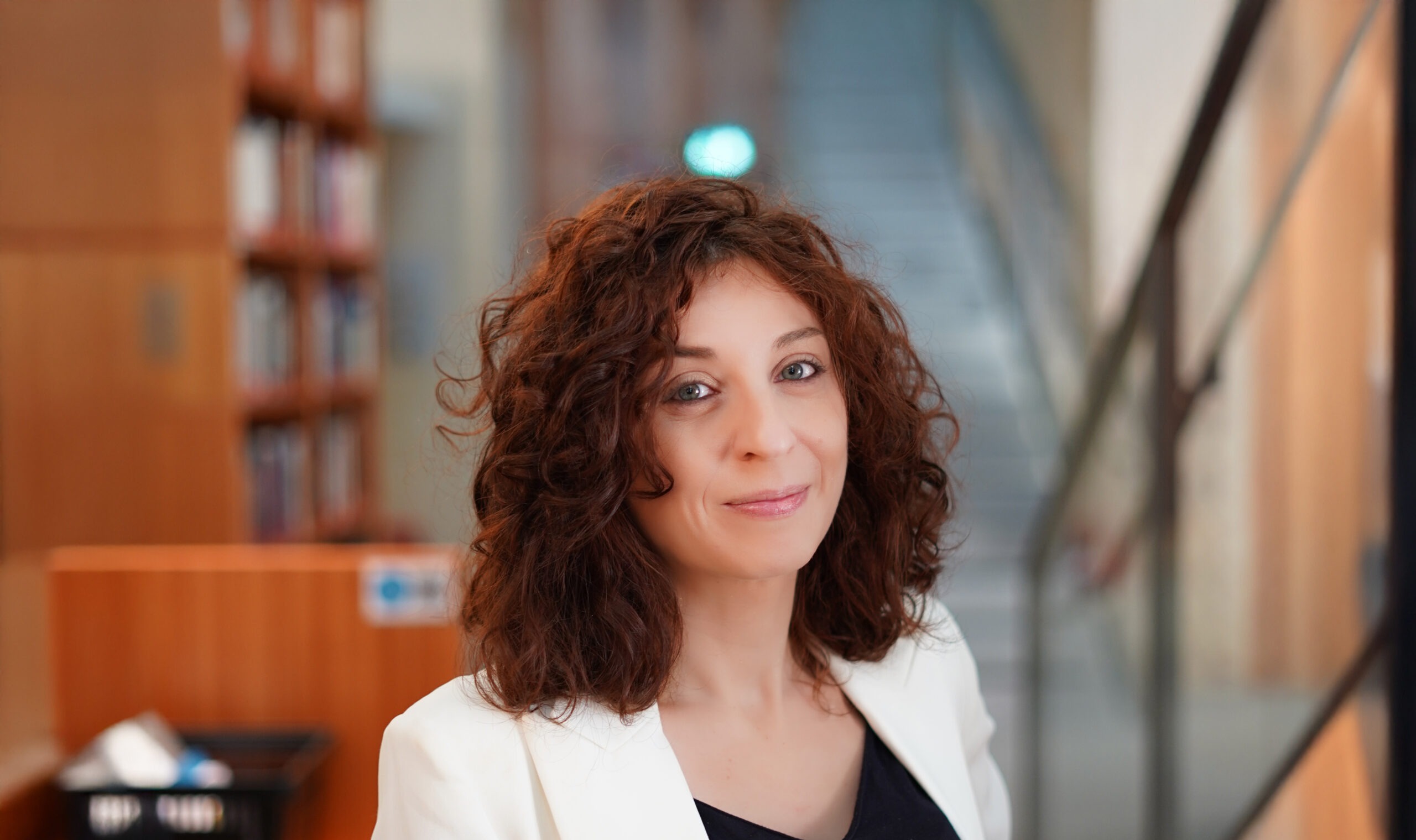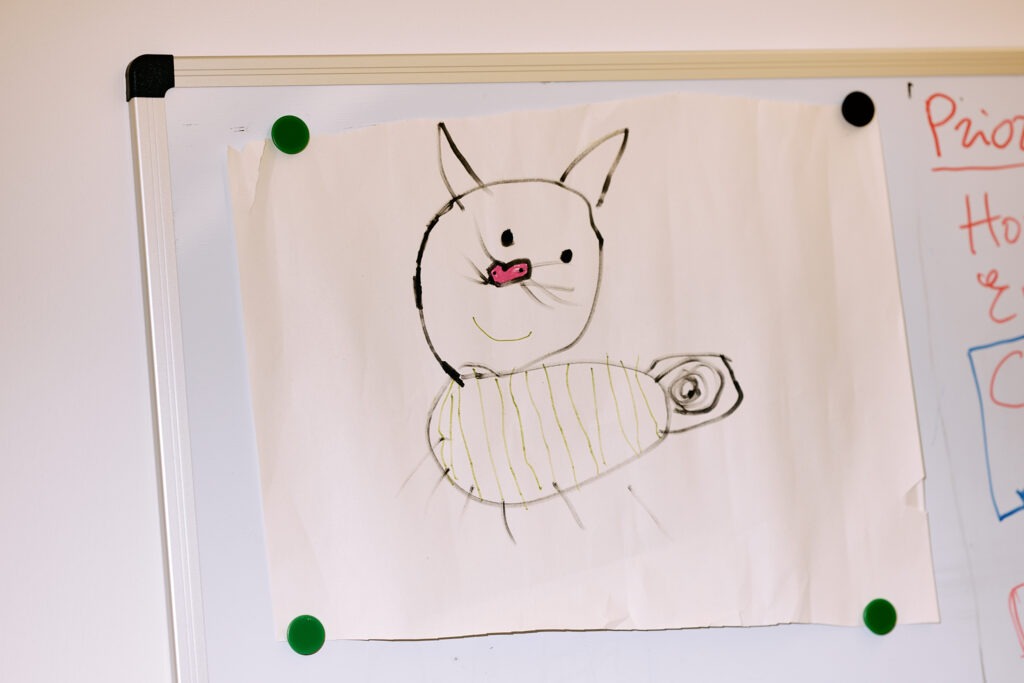
From a Desire to Achieve Social Justice to Excavating the Present: Dr. Maria Elena Indelicato on Critical Race & Gender Studies, Motivation – and a Day in Research
Welcome to our latest episode of the In Her Element interview series, where we sit down with inspiring WiRe Fellows to talk about their research, routine, and what it means to be a woman in research today.
Today, we chat with Dr. Maria Elena Indelicato, scholar in Gender, Cultural & Critical Race Studies, whose academic journey has taken her from studying Media and Communication at Sapienza University of Rome, Italy, to undertaking her PhD in Gender and Cultural Studies at the University of Sydney, Australia, to lecturing Media and Gender at the NingboTech University China, to receiving funding in Portugal to do research on the history of state sponsored forms of anti-racism.

Dr. Maria Elena Indelicato
Scholar in Gender, Cultural & Critical Race Studies
Host Institute: English Department – Center for American Studies
Scientific Host: Prof. Dr. Silvia Schultermandl

Research Project
Why do we think that ‘feeling’ grounds our capacity to engage with the (socially constructed) ‘world’? And, relatedly, why do we think that certain people inherently possess a greater capacity to engage with the ‘world’ than others?

Maria Elena’s research helps …
… to unravel the origin of racism and achieve social justice.
What and why: From a Desire to Achieve Social Justice to Gender, Cultural, and Critical Race Studies
What is the core question driving your research?
Why do we think that `feeling´ grounds our capacity to engage with the `world´? For `world´ I mean any specific assemblage of laws, policies, and cultures that make up a society. I have pursued this question because, given that every society is divided along the lines of gender, race, ablebodiedness and more, I wanted to uncover how these divisions have emerged, been perpetuated over time, or contested. I also wanted to show how these divisions arise from the same assumption that certain subjects are understood to possess a greater capacity for `feeling´ than others. This might sound not so important, but the whole field of affect theory has been challenged because of universaling white subjectivity. If the `world´ sees you differently, it will never be your oyster. On the contrary, it will hinder your potential.
Can you share what first sparked your interest in this field?
The desire to achieve social justice.
If you had to describe your work in just three words, what would they be?
Excavating the present.
And the focus of your research, in three words?
Affect, anti-blackness, and history.
How would you explain your research to a child?
As a mother of a 5-year-old, I can tell children understand much more than we believe. I explained to my daughter that mammy questions why we think of certain people as if they were problematic rather than admitting that we are those causing problems. I also told her that everything that seems recent has, instead, a long history. I research the past because it usually explains why we tend to see others (people negatively racialized as non-white) as being a problem instead of acknowledging that we (people racialized as white) are the issue. With my daughter I maintain an abstract approach. She does not have the tools to understand what racialization means. So, I have spoken to her about oppression, explaining how certain people oppress others and subsequently convince everyone that oppression is merely a solution to a problem. They lead everyone to believe that the oppressed deserve their oppression because they, rather than oppression itself, are the problem. Relating this perspective to my current research topic: the oppression of Black people has been rationalized on the premise that, in comparison to us – white individuals – they are less adept at engaging with the `world´. This ability has been referred to by scientists using various terms over the past two centuries. Nowadays, it is commonly referred to as `affect´.

Inside the Research Routine: A Day in the Life of Gender, Cultural & Critical Race Scholar
What does a typical research day look like for you?
My typical workday must seem super boring to most people, but for me every day is chaotic. I do cover a few institutional roles, and I keep track of what is happening in a few disciplinary fields. On top of this, I am usually very keen to undertake community service. This means that I spend every day jumping from one thing to another, from making sure that an acceptance letter is delivered on time, arranging the catering of an event, overseeing peer reviews of special issues and sections, to writing grant applications, assisting students, reading colleagues’ work, and finally focusing on my research!

What qualities are most important for success in your field?
I am an interdisciplinary scholar. Not many other scholars share my approach. There are only a handful of us who simultaneously engage with gender, sexuality, and race. One might argue that intersectionality – a theoretical framework established by Black feminists in the U.S. to illustrate how gender, race, and class-based oppression do not exist in isolation but often exacerbate one another – has gained traction in Europe for some time. However, intersectionality has primarily been employed to examine how different forms of oppression impact individuals in their daily lives. Intersectionality has not been used to show how gender, sexuality and race have been used to see the `world´ and have it explained by `us´ to `others´. Sara Ahmed has called this race feminism. If this were indeed a distinct field, I believe that I succeeded to become part of it by consistently challenging myself to learn more and acquire additional tools to understand how oppression becomes normalized over time and, conversely, how liberation for all can be realized. On a more practical level, I believe that my persistence has been beneficial. I mean, throughout my life, even when I was a child, I had to often move and adapt. I have done this out of necessity and yet, by moving and accepting to change to `fit´, I have gained significant insights and truly grown, both personally and academically. This has eventually become my biggest strength.
Which personal strengths help you most in your work? And have you encountered any traits that sometimes get in your way?
I do have a hyperactive brain that is also pretty good at drawing connections, even amongst the most disparate things. Obviously, this has helped me a lot since it allows me to pick up new stuff quickly and work with a wide variety of colleagues. At the same time, this has also worked against me, as the downside of having such a brain is a tendency towards boredom. I find it difficult to remain focused on a single topic. Once I reach a certain level of understanding, I often feel compelled to begin anew. Academia, however, tends to reward consistent people, particularly those whose PhD dissertation topics broadly align with their subsequent research pursuits.
Learning, Leading, and Finding Balance: Inspirations and Realities on the Researcher’s Path
When you were in high school, how did you imagine the life of a researcher? How does it compare to your reality now?
I somehow always wanted to become an academic. I literally loved studying all my life so when I was a kid, I just knew that I wanted to pursue a career that allowed me to study. However, back then, I did not know that humanities and social sciences scholars did research too. I sort of believed they just taught and even wrote books, but I somehow did not figure out they did research. At the same time, I had long fantasized about being first an oceanographer, then an archaeologist. At one point, I wanted to become a cultural anthropologist. Eventually, I decided to try Media and Communication. I guess that, at first, I tried to combine my love for studying with my desire to see the world. Then, when I worked out that you can travel by doing research, I settled for the more critical fields of Gender, Cultural, and Critical Race Studies.
Who or what inspires you most in your work?
I have a deep fascination with the past. Other scholars, particularly historians, tend to view the archive as a source for extracting answers or evidence. In contrast, I see the archive as a mystery, a puzzle, or even a case that requires to be thoroughly investigated and even undergo what I would call `forensic theorization´. This may seem cryptic. Let me provide a concrete example. When I read through something, whether it is from a few decades or centuries ago, I focus on keywords or themes, their frequency, how they relate or do not relate to one another, and how they converge around specific problems or solutions, among other aspects. From these observations, I reconstruct what Michel Foucault termed the `regimes of truth and knowledge´ of a particular historical period, along with their relations to power.
However, I have always gone a step forward. I have always also been interested in the work that certain concepts, tropes or themes do more compared to others. I have sought to uncover what remains unnamed or unspoken, what exists yet is so condensed that it becomes opaque. For a long time, I thought that I was reconstructing what Stuart Hall referred to as `chain of equivalences´. Eventually, I realized that I was revealing the racial scientific discourses of a specific era. This realization came to me when I first read Tracey Banivanua-Mar’s first book, Violence and the Colonial Dialogue. In this book, Banivanua-Mar reconstructs what she defined as `melanesianism´ by merely observing how violence is rationalized exclusively when perpetrated by the white colonizers. Starting by this simple observation, Banivanua-Mar compellingly illustrates how archives obscure and normalize, rather than explicitly stating, the racist constructs that informed their making. Therefore, it is the responsibility of the researcher to reveal the truth, and uncovering the truth is precisely what drives my work.
What’s the biggest challenge you face balancing work and personal life—and how do you try to manage it?
I must admit that, before having children, I did not have much of a personal life. At one point, though, I learnt to keep myself healthy by working out, cycling and regularly hanging out with friends. Working 24/7 was hardly a problem because the work I did was meaningful to me. Since I have children, I have even less time for myself. Albeit I really love spending time with my children and being there for them, I wish I had the time to go for a run, a swim or just a nighttime concert. At the same time, I have never given up on socializing, so to balance things out, I learnt to befriend other kids’ parents so that while our kids spend time together, us parents can have some adult, not work-related, time.
Stay tuned for Part 2, where Maria Elena reflects on milestones in her field, the global impact of her research, and her favorite discoveries in Münster!
